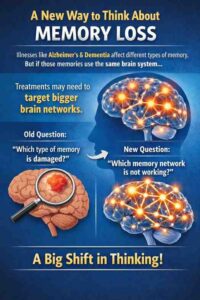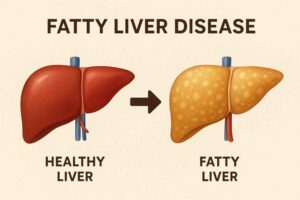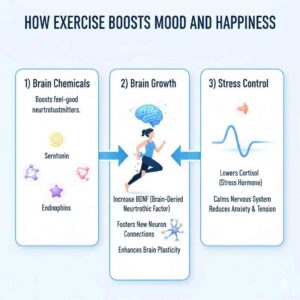A lack of vitamin B12 may indicate cancer, especially if it coexists with other permanent symptoms. Although anemia, exhaustion, and nerve problems are the results of vitamin B12 deficiency, studies have revealed alarming connections between low B12 levels and a number of cancers including blood, pancreatic, and stomach tumors.
This thorough book explores the important link between cancer and vitamin B12 deficiency.
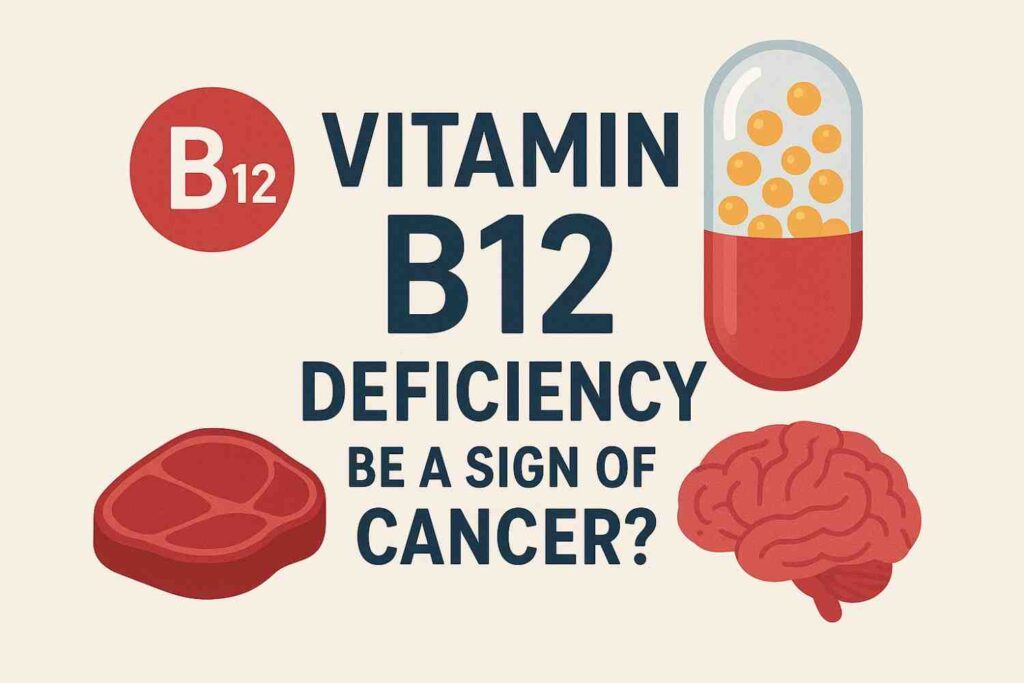
What Is Vitamin B12 & Why Is It Important?
The water-soluble vitamin B12, sometimes referred to as cobalamin, is an essential nutrient for sustaining a number of body processes. This vital vitamin cannot be produced by the human body, thus it must be obtained from diet or supplementation.
Vitamin B12 is essential for the synthesis of DNA and the production of red blood cells. Additionally, this vitamin helps to promote the myelination process in the central nervous system and ensures that nerve cells continue to operate properly. The vitamin aids in these essential functions by cooperating with two important enzymes, methionine synthase and L-methylmalonyl-CoA mutase.
Vitamin B12 is absorbed via a convoluted process. The vitamin first attaches itself to proteins in food before being separated by saliva in the mouth. The liberated vitamin then joins forces with a particular binding protein called haptocorrin. This process is carried out by the stomach’s hydrochloric acid and gastric protease, which eventually cause the vitamin to bind with intrinsic factors for distal ileal absorption.
Humans between the ages of 19 and 64 should consume roughly 1.5 micrograms each day. Still, the Reference Daily Intake recommends 2.4 micrograms, which is a little more, with higher needs for those who are pregnant or nursing.
The following are the main dietary sources of vitamin B12:
Meat, fish, and poultry are examples of animal products.
Dairy products, such as yoghurt, cheese, and milk
Fortified breakfast cereals and eggs
Common Causes of Vitamin B12 deficiency
Vitamin B12 deficiency is caused by a number of illnesses and lifestyle choices. Rather than nutritional deficiencies, absorption issues are the most common reason.
Pernicious Anaemia: A major contributing cause to B12 deficiency is pernicious anemia. It happens when the body is unable to create an intrinsic factor, which is an essential protein for the absorption of vitamin B12. People with northern European or African heritage seem to be more likely to have this illness.
Absorption of B12 can often be prevented by digestive system diseases. These consist of:
4.infection with Helicobacter pylori
5.Chronic illness of the pancreas
Drugs: Over time, some medications may make it more difficult for the body to absorb vitamin B12. B12 deficiency is more likely to occur in people using heartburn medications, particularly proton pump inhibitors or metformin for diabetes.
Age: It is more difficult for older adults to absorb naturally occurring B12 from food sources because their stomachs do not produce enough hydrochloric acid.
Surgery: Surgical treatments that affect the digestive system may make it harder for the body to absorb B12. Gastrectomy and weight-loss surgery frequently impair the body’s ability to absorb B12. Similar to this, deficiencies may arise from procedures that remove or avoid the end of the small intestine, which is where B12 absorption mostly takes place.
Lifestyle Decisions: Drinking too much alcohol reduces the absorption of vitamin B12. For men, this means consuming more than two drinks per day, and for women, it means consuming more than one drink.
Dietary Habits: Although less prevalent in developed countries, dietary patterns do play a part. The lack of natural B12 in plant-based meals puts strict vegetarians and vegans at higher risk. Infants of vegan mothers who are breastfed are also at danger.
Genetics: Although uncommon, genetic disorders can result in a severe B12 shortage. These consist of transcobalamin II deficiency, hereditary intrinsic factor deficiency, and Imerslund-Gräsbeck syndrome.
Can Vitamin B12 deficiency be a sign of Cancer?
A vitamin B12 shortage can occasionally cause anxiety, and although it’s a popular query, it’s crucial to realize that it is typically not a direct indicator of cancer. The two, however, may be related in certain circumstances. Insufficient B12 intake can cause symptoms such as weakness, exhaustion, memory loss, or even nerve damage. These are very typical symptoms that can be brought on by a number of illnesses, including cancer.
In certain instances, digestive system tumors, such as pancreatic or stomach cancer, might impair your body’s ability to absorb vitamin B12. The shortage is caused by the way the disease affects your digestive system, not by the illness itself. Additionally, some blood malignancies, such as lymphoma or leukemia, might interfere with the synthesis of red blood cells and cause a B12 shortage.
However, cancer is not always the result of a B12 shortage. It is crucial that you speak with your physician if you are experiencing symptoms. Whether it’s just a diet problem or something more serious, they can help diagnose the problem. Additionally, receiving the appropriate treatment for suspected cancer depends on early detection.
Signs And Symptoms of Vitamin B12 Deficiency
B12 insufficiency symptoms are nonspecific, appear in a wide range of ways, and frequently asymptomatic. “They can be mild but will get really bad if you don’t address them,” the video says.
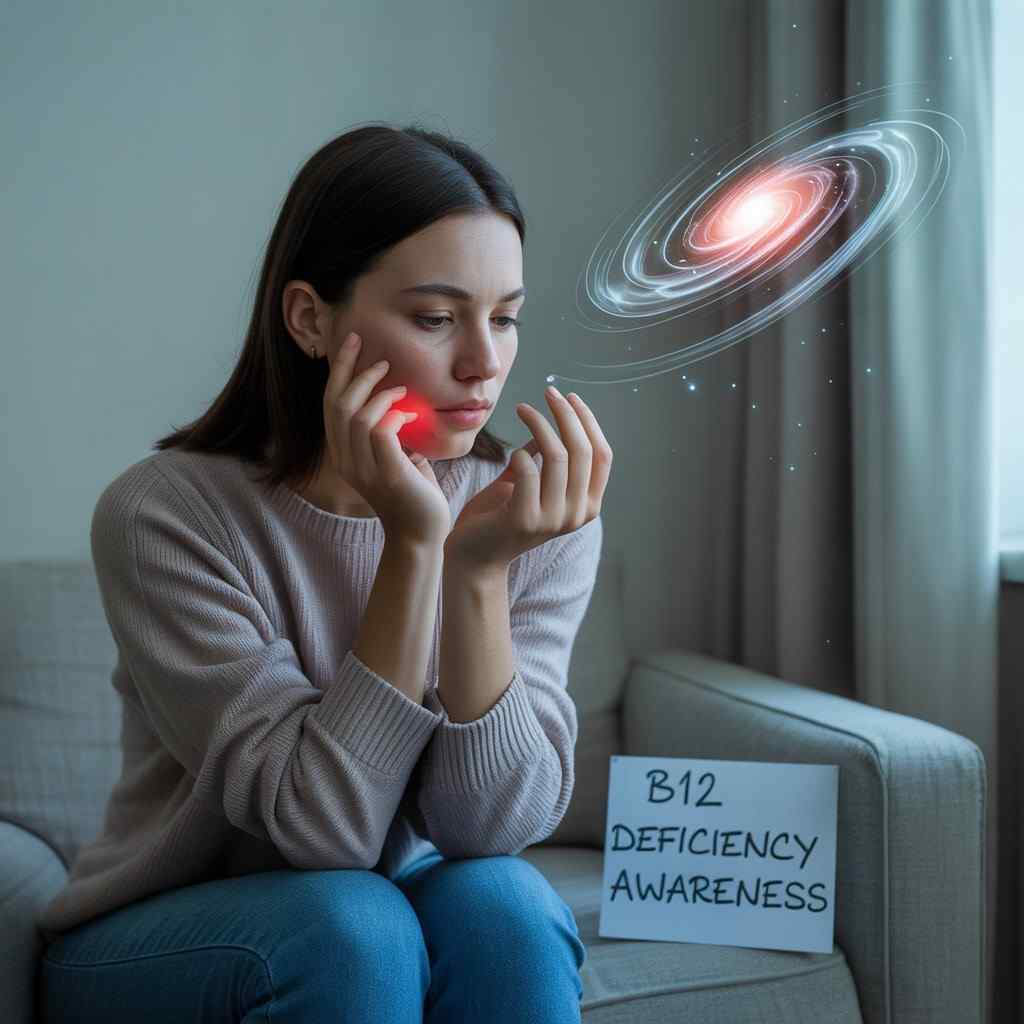
1.Weakness and fatigue are two typical signs of anemia caused by a B12 deficiency in other nations.
2.Neurological symptoms include cognitive impairment, balance problems such trouble walking, and numbness or tingling in the hands and feet.Tag a buddy who frequently exhibits some of these symptoms.
3.Anemia and the breakdown of red blood cells can cause paleness or jaundiced skin.
4.Glossitis and mouth ulcers: inflammation of the tongue that causes bleeding and a sore, red tongue.
5.Breathlessness or lightheadedness: Symptoms of anemia, in which the body is receiving less oxygen.
Cancers that cause b12 deficiency
1 .Stomach (Gastric) Cancer : It can damage the stomach lining and reduce intrinsic factor, so your body can’t absorb B12 properly.Researchers explain that intact gastric mucosa is required for intrinsic factor and normal absorption of B12, and gastric damage/atrophy can lower B12 levels.
2. Small intestine / Ileum cancer : B12 is absorbed mainly in the terminal ileum.Multiple studies confirm the ileum is the key site of B12 absorption, and loss/disease of ileum causes malabsorption and macrocytic anemia over time.
3.Pancreatic cancer : This is less popular but scientifically real.A PubMed study notes B12 malabsorption is observed in a significant portion of adults with exocrine pancreatic insufficiency and suggests failure to degrade haptocorrin may block B12-IF binding.
Vitamin B12 deficiency during Pregnancy
Vitamin B12 is crucial during pregnancy because it aids in the formation of red blood cells and the development of the baby’s brain and nervous system. A pregnant woman may experience fatigue, weakness, mood swings, and even anemia if she does not get enough vitamin B12. Low amounts of B12 in the newborn can raise the risk of developmental delays, low birth weight, or birth abnormalities.
Can masturbation cause vitamin B12 deficiency ?
Vitamin b12 is a crucial vitamin for your semen . it has numerous beneficial effects on the quality of yoour sperms.It also increases the functionality of your reproductive organs in general. Specifically, it decreases the toxicity of homocysteine,which is a type of amino acid; it reduces the levels of nitric oxide ; it decreases the oxidative damage done to sperm; and iit also decreases the impairment of sperm caused by inflammation.It,s contained within your sperms and it is crucial for their stamina . it also helps your body to transform the food you eat into energy that your cells can use .Moreover,it helps keep blood and nerve cells strong prevents a type of anemia that can cause fatigue.When you ejaculate,you lose vitamin b12,and that can make you feel exhausted.
How to Diagnose &Treat B12 Deficiency
Doctors prescribe more tests when the first results are still uncertain. Among these are blood tests for homocysteine and methylmalonic acid (MMA). As B12 levels fall, both markers increase, providing more accurate diagnostic information.
Treatment strategies differ depending on the underlying causes after a B12 deficiency has been confirmed. Oral B12 supplements taken in between meals are frequently adequate for diet-related deficits. However, alternative therapies are needed for people with absorption problems, namely those with pernicious anemia.
The following are included in the typical therapy protocol:
1.Injections of B12 (hydroxocobalamin) into the muscles
2.For two weeks, take the first dose every other day.
3.After that, maintenance doses every two to three months
4.Frequent blood tests to check levels of B12
Conclusion
Examining a number of variables is necessary to fully understand the connection between vitamin B12 deficiency and cancer. B12 insufficiency is a potential warning indicator for a number of cancer types, particularly gastrointestinal cancers, even though it does not cause cancer on its own.
Since symptoms of B12 insufficiency can mimic those of other disorders, doctors now understand that a precise diagnosis is crucial.
Frequently Asked Questions
Is low vitamin b12 a sign of cancer ?
Low vitamin B12 is not usually a sign of cancer—it most commonly happens due to poor diet, low stomach acid, or absorption problems.

